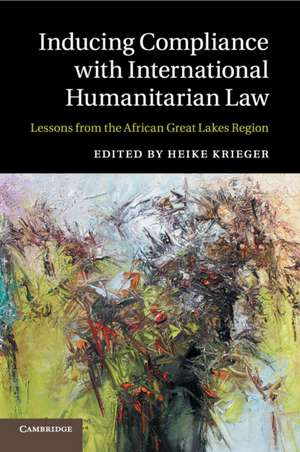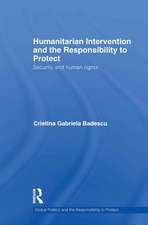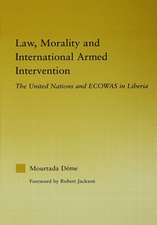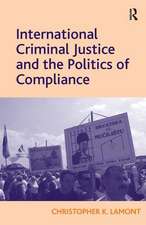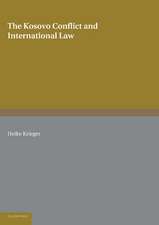Inducing Compliance with International Humanitarian Law: Lessons from the African Great Lakes Region
Editat de Heike Kriegeren Limba Engleză Paperback – 12 dec 2018
| Toate formatele și edițiile | Preț | Express |
|---|---|---|
| Paperback (1) | 432.64 lei 6-8 săpt. | |
| Cambridge University Press – 12 dec 2018 | 432.64 lei 6-8 săpt. | |
| Hardback (1) | 1009.50 lei 6-8 săpt. | |
| Cambridge University Press – 17 sep 2015 | 1009.50 lei 6-8 săpt. |
Preț: 432.64 lei
Nou
Puncte Express: 649
Preț estimativ în valută:
82.80€ • 86.12$ • 68.35£
82.80€ • 86.12$ • 68.35£
Carte tipărită la comandă
Livrare economică 15-29 aprilie
Preluare comenzi: 021 569.72.76
Specificații
ISBN-13: 9781107499560
ISBN-10: 1107499569
Pagini: 575
Ilustrații: 6 b/w illus. 8 tables
Dimensiuni: 152 x 230 x 28 mm
Greutate: 0.76 kg
Editura: Cambridge University Press
Colecția Cambridge University Press
Locul publicării:New York, United States
ISBN-10: 1107499569
Pagini: 575
Ilustrații: 6 b/w illus. 8 tables
Dimensiuni: 152 x 230 x 28 mm
Greutate: 0.76 kg
Editura: Cambridge University Press
Colecția Cambridge University Press
Locul publicării:New York, United States
Cuprins
1. Introduction Heike Krieger; Part I. Conditions for Compliance by Armed Groups, Focussing on Non-Hierarchical Instruments: 2. Rational motives for civilian targeting in civil war Reed Wood; 3. Insurgent governance in the Democratic Republic of the Congo Zachariah Mampilly; 4. The power of persuasion: the role of international non-governmental organizations in engaging armed groups Ulrich Schneckener and Claudia Hofmann; 5. Comment - persuading armed groups to better respect international humanitarian law Olivier Bangerter; 6. Implementing humanitarian norms through non-state armed groups Sandesh Sivakumaran; Part II. Criminal Prosecution: Hierarchical Enforcement on Different Levels: 7. Courts of armed groups a tool for inducing higher compliance with international humanitarian law? Jan Willms; 8. Comment - perspectives on courts established by armed opposition groups Dieter Fleck; 9. The role of international criminal prosecutions in increasing compliance with international humanitarian law in contemporary African conflicts Robert Cryer; 10. National courts: the situation in the Democratic Republic of the Congo Jean-Michel Kumbu; 11. Comment - the Congolese legal system and the fight against impunity for the most serious international crimes Balingene Kahombo; Part III. International Organisations as Actors for Ensuring Compliance: 12. Enforcing international humanitarian law through human rights bodies Dominik Steiger; 13. Comment - enforcement of international humanitarian law through the human rights organs of the African Union Faustin Zacharie Ntoubandi; 14. The UN Security Councils special compliance systems - the regime of children and armed conflict Regina Klostermann; 15. Ensuring peacekeepers' respect for international humanitarian law Siobhán Wills; 16. Comment - obligations of States contributing to UN peacekeeping missions under Common Article 1 to the Geneva Conventions Matthew Happold; 17. Comment - UN peacekeeping in the Democratic Republic of the Congo: the travails of civilian protection Denis M. Tull; Part IV. The Role of Third States: 18. Common Article 1 to the Geneva Conventions: scope and content of the obligation to ensure respect - narrow but deep or wide and shallow? Robin Geiß; 19. Complicity in violations of international humanitarian law Helmut Philipp Aust; 20. International responsibility for humanitarian law violations by armed groups Kirsten Schmalenbach; Conclusion: 21. Where states fail, non-state actors rise? Inducing compliance with international humanitarian law in areas of limited statehood Heike Krieger.
Descriere
Evaluates various means of inducing compliance with international humanitarian law by state and non-state actors.
